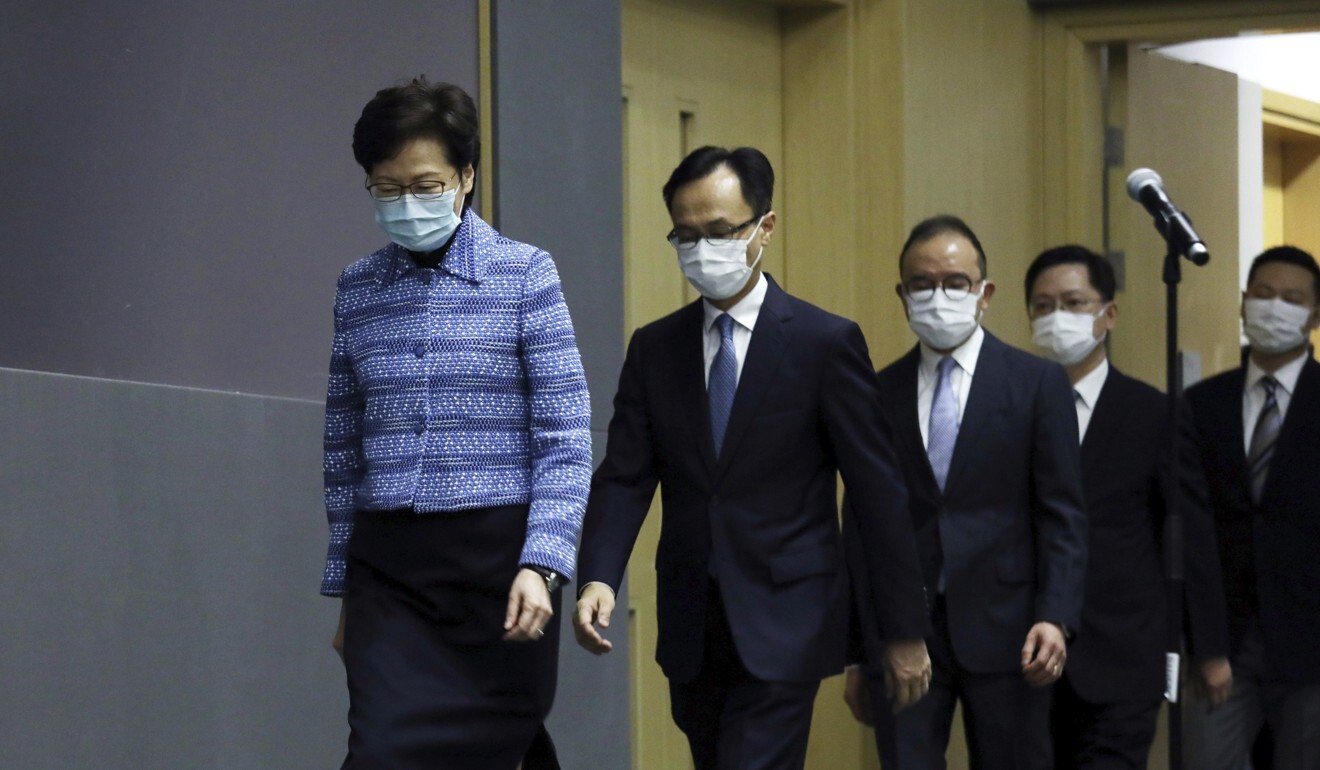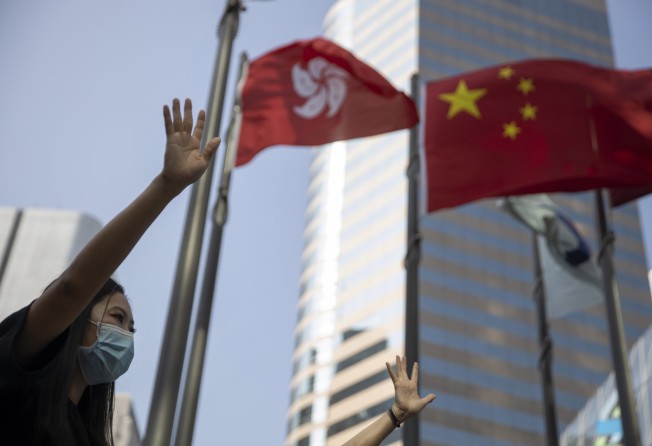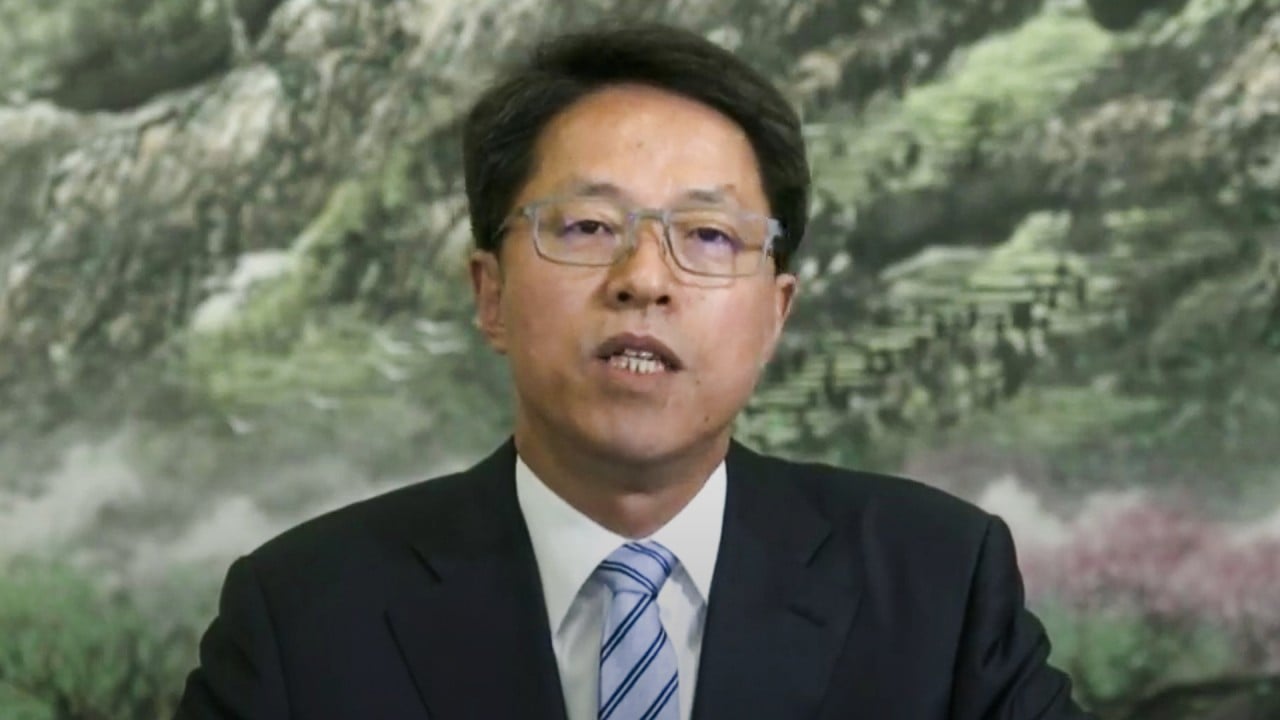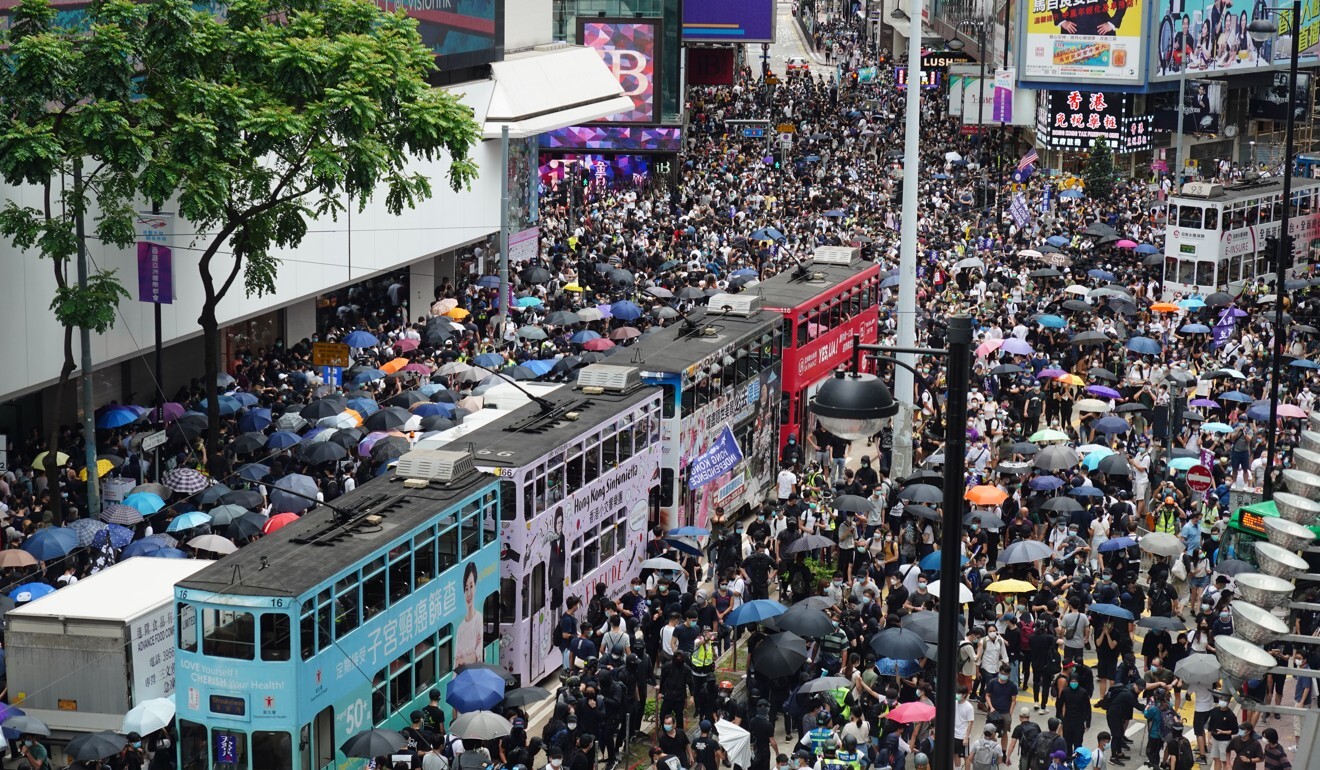
Is Beijing’s national security law the right way to go about defusing the political anger in Hong Kong?
- Since April, Hongkongers have faced bombshell announcements from the central and local government that raise questions about the ‘one country, two systems’ framework. These developments will not quell Hong Kong’s civil unrest

The bombshells keep on coming, so fast many Hongkongers – myself included – are in a daze. By bombshells, I mean the flurry of shock waves from the north and its proxies here.
In April, Beijing blindsided us. It made clear its institutions here can supervise local affairs even though our government has since reunification held the position that these institutions are subject to Article 22 of the Basic Law. This prohibits departments of the central government from interfering in affairs which the Hong Kong government administers on its own. After three flip-flopping statements, the Hong Kong government backtracked.
That same month, commerce chief Edward Yau Tang-wah criticised an RTHK reporter for asking a World Health Organisation official a question about Taiwan being granted membership to the organisation. Weeks later, in May, the Communications Authority ruled that a popular satirical television show produced by RTHK “denigrated and insulted” the police. RTHK subsequently suspended the show.
May was a bombshell month. Legislative Council president Andrew Leung Kwan-yuen fast-tracked the election of a pro-government legislator as chairwoman of a key Legco committee.
The city’s exam authority, at the urging of the government, invalidated a Diploma of Secondary Education (DSE) exam question which asked if Japan did more good than harm to China during 1900-1945. And, in an interview with a Communist Party-controlled newspaper, Lam suggested that liberal studies has poisoned the minds of young people.
On June 7, civil service secretary Patrick Nip Tak-kuen told Hong Kong’s 180,000 civil servants they serve not only Hong Kong but the whole of China. Do mainlanders pay Hong Kong taxes to be served?

But the mother of all bombshells hit us on May 21 when the central government announced it would impose a national security law on Hong Kong. Is this what slow but steady mainlandisation looks like – imposing mainland laws on Hong Kong, changing the role of civil servants, and pushing back on anything sensitive, even a reporter’s question? Has “one country, two systems” become a facade?
A bombshell of sorts came on June 8 when Beijing did an about-turn on its long-held assertion that unaffordable housing and livelihood issues were to blame for Hong Kong’s civil unrest. Hong Kong and Macau Affairs Office deputy director Zhang Xiaoming now says the city’s unrest is political.
I applaud Zhang for finally waking up to this reality. But reality requires a strategy to deal with it. Does Beijing have a strategy to defuse the political anger that erupted on our streets last year? If it thinks the solution is imposing a national security law, then it is tragically mistaken.

03:18
Hong Kong’s national security law is like ‘anti-virus software’, top Beijing official says
Chief Executive Carrie Lam Cheng Yuet-ngor blasted street protests to advocate for democracy as “rule by fear”. She obviously doesn’t understand Hongkongers. Only she and Beijing have the power to rule, although it now looks like her power is in name only.
Others see the security law, the forcing of corporations such as HSBC to support it, and the mass arrests as rule by fear, not the protests. The protests turned violent only after Lam refused to listen to the voice of the people.
Beijing’s security law for Hong Kong is a done deal. But it could at least allow the voice of the people to be heard. That voice was ruled invalid on June 9 by the government, which said district councillors did not have the legal right to discuss the security law.
Come again? The opposition camp won 17 out of 18 district councils with 1.6 million votes in November. How can that voice be snuffed out on the technicality that district councils must only discuss district issues? The national security law is an issue that goes to the heart of the people, even at the district level.

Zhang said the security law will only target a tiny minority, including violent protesters. Then why use a sledgehammer mainland law? Violent protesters may be rioters, but how do they fit into subversion, secession, terrorism and foreign interference under the security law?
I agree that every country has national security laws. I have nothing against China’s if its true purpose is to protect the country, not to stifle opposition voices through mass arrests and disqualification of election candidates. I urge Beijing to find a strategy that heals, not further hurts, the city I was born in.
Michael Chugani is a Hong Kong journalist and TV show host